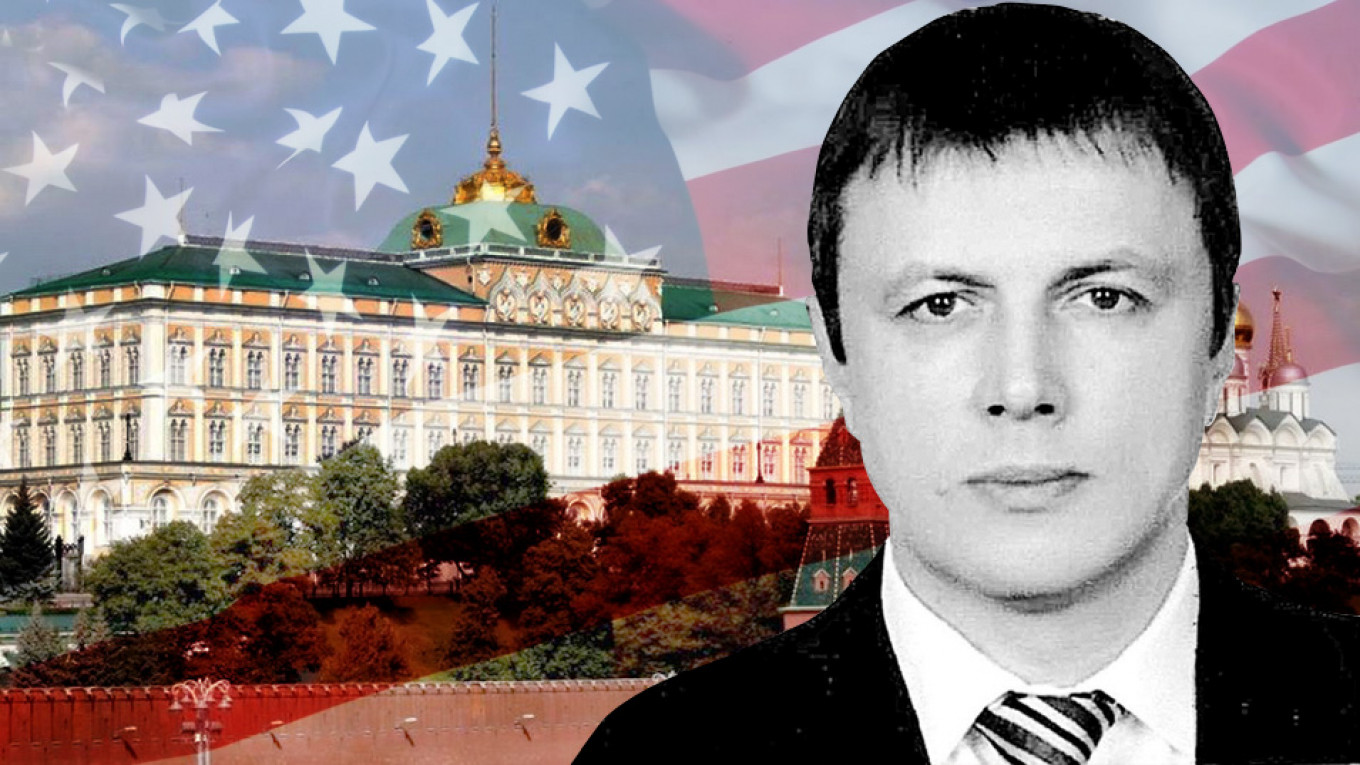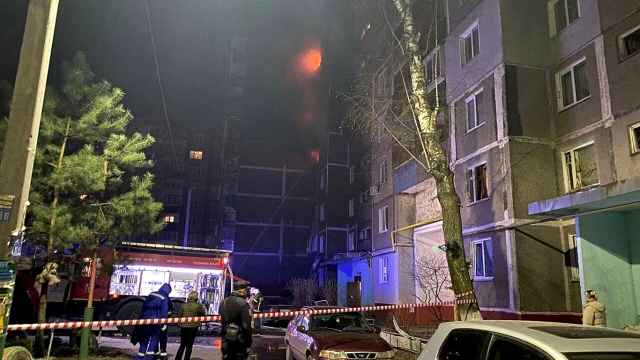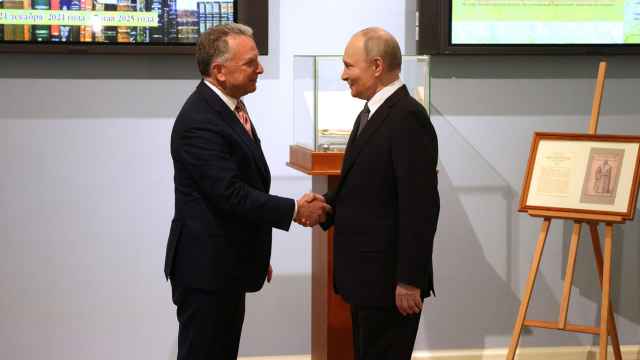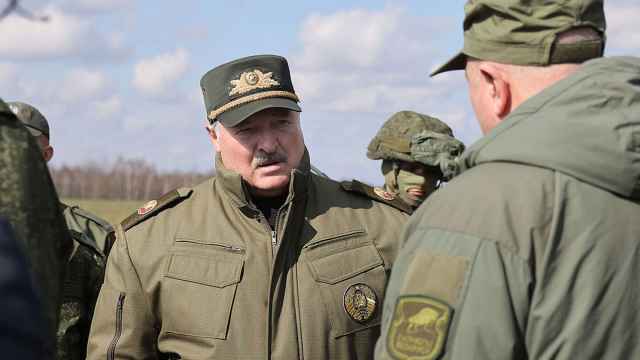The intriguing story of a top U.S. spy who was evacuated from Russia in 2017 over fears he could be caught has captivated the world.
One theory holds that the agent was evacuated over fears that U.S. President Donald Trump might reveal his identity “in confidence” to his friend, Russian President Vladimir Putin.
Another and more likely theory suggests that leaks in the U.S. media had emerged by which Russian counterintelligence could identify the spy. It is a classic example of espionage and a great feat for any intelligence service to recruit a young employee of a foreign embassy and have him advance in the civil service under the tutelage of an influential government official until he gains access to classified information.
In such situations, it is best if the agent is not a senior official. Senior officials are monitored very closely by counterintelligence which makes it very difficult to arrange clandestine contact with them.
By contrast, a mid-level official with access to secret documents — and even better, one who is trusted by a senior official with security clearance — is the optimal and most valuable type of agent.
On the face of it, there is nothing extraordinary about the story of the Russian spy whom the CIA pulled out of Moscow post-haste in June 2017. Two aspects of this spy saga make it very interesting, however.
First, Russian counterintelligence never discovered the mole and the man was never apprehended. Second, the U.S. media made a lot of noise over the claim that the agent provided definitive proof that Putin not only approved, but personally oversaw the operation to interfere in the 2016 U.S. presidential elections. His alleged goal: To hurt Hillary Clinton’s election bid and help Donald Trump’s.
Where is the man with the secrets?
Although it has not been confirmed officially, it seems plausible that the spy in question was, indeed, Oleg Smolenkov, a former employee of the Russian President’s Foreign Policy Directorate who worked in the Russian Embassy in Washington until 2008, and then on the staff of the Russian government until 2012.
This information was first reported by a Telegram channel, and then confirmed by the Russian outlet Kommersant — based, ironically, on information from certain “sources in U.S. government agencies.”
Kommersant also reported that Smolenkov and his family disappeared while vacationing in Montenegro in June 2017. It undoubtedly took the FSB little time to figure out why a man carrying state secrets suddenly vanished along with his whole family.
Although the report said that Russia’s Investigative Committee raised the possibility of foul play, the FSB quickly ascertained that Smolenkov and his loved ones were doing just fine and living in a foreign country — which they probably learned by intercepting phone conversations between the spy and his close relatives back in Russia.
The fact that Smolenkov was not charged with “betraying the homeland” suggests that his trial, attempts to lure him back to Russia, or his arrest in a third country might have brought sensitive information to light that could have damaged top Russian officials.
Kommersant also established that on June 5, 2018 and using their real names, Smolenkov and his family purchased a large $1million home in a secluded Washington suburb of Virginia.
Just days ago, correspondents from NBC News tracked the family to that address and were prevented from talking to the family by U.S. intelligence agents guarding the house.
Considering that the CIA witness protection program normally gives such “assets” completely new identities, it is rather strange that the Smolenkov family has been living in the U.S. for two years under their real names.
As they say, though, “s--- happens” — and apparently, it happens even in the CIA.
For example, Alexander Poteev, former colonel of the Russian Foreign Intelligence Service, who had revealed to the FBI Russia’s entire network of intelligence agents operating in the U.S. illegally — and who were exchanged in 2010 for U.S. and British agents, including Sergei Skripal — lived under his real name in a suburb of Miami until 2016.
As a result, not only Russian intelligence agencies, but also U.S. journalists were able to find him — making it necessary for the FBI to urgently relocate him.
In all likelihood, the Smolenkovs will sell their big house in Virginia and blend into the background as “Smiths” or “Jones.”
Probable career
Smolenkov was probably recruited by the FBI or the CIA’s Office of Internal Resources — that conducts intelligence from U.S. territory — when he worked for the Russian Embassy in Washington in the mid-2000s. (The U.S. State Department website lists him as an accredited Russian diplomat until 2008, first as secretary, then first secretary and finally consul.)
He was most likely an “assistant” to Ambassador Yuri Ushakov and engaged not in political and diplomatic work, but in doing the odd jobs of a lackey. According to comments made by those who worked with him, Smolenkov probably agreed to cooperate with U.S. intelligence for the sake of money or to avenge his employers for the humiliating work.
It is tempting to blame the counterintelligence team of Russia’s Foreign Intelligence Service (SVR) for its failure to realize that Smolenkov had been recruited, but it is almost impossible to find such a “mole” without an “inside tip” from the enemy’s own intelligence agencies.
After returning home from his post in Washington, Smolenkov continued his “journey through the Russian civil service” along with Ushakov, who served as Deputy Chief of the Government Staff from 2008 to 2012, and then as Presidential Aide for international affairs.
Smolenkov occupied mid-level positions in the government apparatus and in the Foreign Policy Directorate up until he fled Russia. He probably served as a personal assistant to Ushakov, carrying out technical tasks rather than substantive work. At the same time, he likely had access to top-secret documents.
Of course, Smolenkov’s U.S. handlers were most interested in his proximity to Ushakov, a Putin confidant. This made him an “especially valuable source.”
The FSB must have determined by now what the two men might have discussed, how and when.
Judging by the fact that Ushakov continues to progress in his career, it would seem that he has not been blamed for events.
Kremlin secrets or tall tales?
Could Smolenkov have somehow gained access to information that unequivocally proved not only that Russia had interfered in the U.S. elections, but also that Vladimir Putin led the operation personally? Definitely this would have not been possible in his official capacity, and it is unlikely that even his boss, Ushakov, had access to such information.
According to the very detailed indictment handed down by U.S. Special Prosecutor Robert Mueller, as well as his final report, Russian interference came in two forms. One was a cyber operation in which Russia’s GRU hacked into the servers of the Democratic National Committee then published information harmful to Hillary Clinton by funneling it through WikiLeaks, the special DCLeaks site, and the “Romanian hacker” Guccifer 2.0. The other was social media trolling by Russia’s Internet Research Agency that Mueller linked to the well known Putin associate and businessman, Yevgeny Prigozhin.
It is difficult to imagine that Putin personally took part in decisions to carry out such operations, and even more implausible that such decisions would have been documented as, say, secret presidential orders. This is, first, because Russian intelligence does not need the sanction of the president to break into the servers of the DNC: It is their direct responsibility to do such things on a daily basis.
Of course, it is quite another matter to decide to publish information obtained in this manner for the sake of a political objective. That would make it a large-scale operation to influence the domestic politics of Russia’s main rival.
Without sanction from the top, nobody in the intelligence service would take the responsibility for something this sensitive. It isn’t necessary, however, to convene the Russian Security Council to obtain such sanction: A verbal go-ahead is enough.
And it is unlikely that this decision was discussed with other senior officials of the presidential administration: That would violate the rules for ensuring the safety of intelligence operations.
Only if Vladimir Putin had serious concerns about the possible damage such an operation might cause to Russia’s foreign policy interests and to further relations with the U.S. could he personally, and in the most general terms — without revealing any details — ask for the views of his main foreign policy advisor.
There is little chance, however, that Putin felt the need for such consultations: He already understands everything himself.
It is even more difficult to imagine that the highly experienced and cautious Ushakov would share such information with his personal assistant.
So, why did the CIA feel that Smolenkov had provided the U.S. with conclusive proof of Putin’s role in the intervention operation?
Possibly, having already read what the U.S. media was writing, Smolenkov simply made up his mind that he could have heard such statements from his boss, and said as much to the CIA.
Sources often overestimate their own importance in this way.
Also, U.S. agents might have picked up some mobile phone or e-mail chatter between Russian officials in the presidential administration that was based not on their knowledge of any secrets, but on their loose interpretation of Putin’s public comments regarding his dislike of Clinton and his preference for Trump.
Smolenkov seemed to have fed the CIA a diet of tales reflecting the very information they hoped to hear from him, and they probably had no way of corroborating the information he was giving them.
Of course, the whole scandal is unpleasant for Russia. It revives the U.S. discussion of “Russian interference” that had only just begun to subside. It will not cause, however, more damage than has already been done. Russiagate is dead for now.
A Russian version of this article was ealirer published by Republic.
A Message from The Moscow Times:
Dear readers,
We are facing unprecedented challenges. Russia's Prosecutor General's Office has designated The Moscow Times as an "undesirable" organization, criminalizing our work and putting our staff at risk of prosecution. This follows our earlier unjust labeling as a "foreign agent."
These actions are direct attempts to silence independent journalism in Russia. The authorities claim our work "discredits the decisions of the Russian leadership." We see things differently: we strive to provide accurate, unbiased reporting on Russia.
We, the journalists of The Moscow Times, refuse to be silenced. But to continue our work, we need your help.
Your support, no matter how small, makes a world of difference. If you can, please support us monthly starting from just $2. It's quick to set up, and every contribution makes a significant impact.
By supporting The Moscow Times, you're defending open, independent journalism in the face of repression. Thank you for standing with us.
Remind me later.







